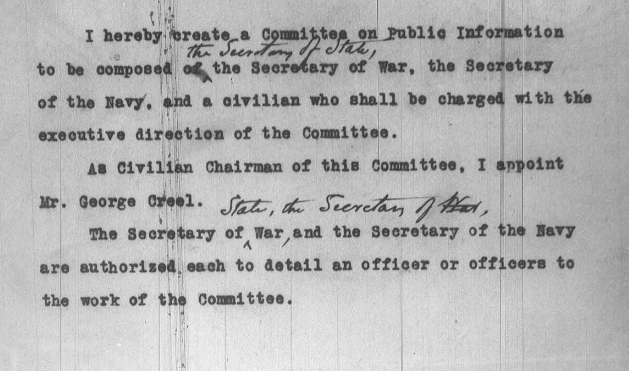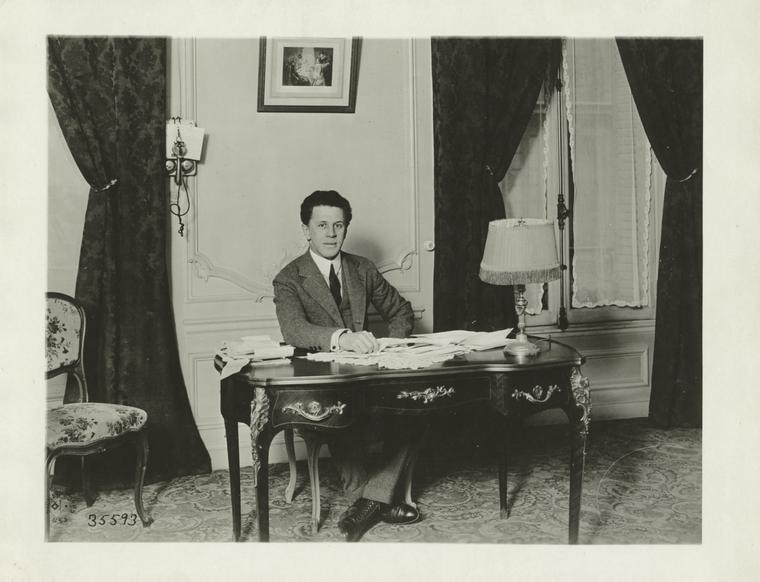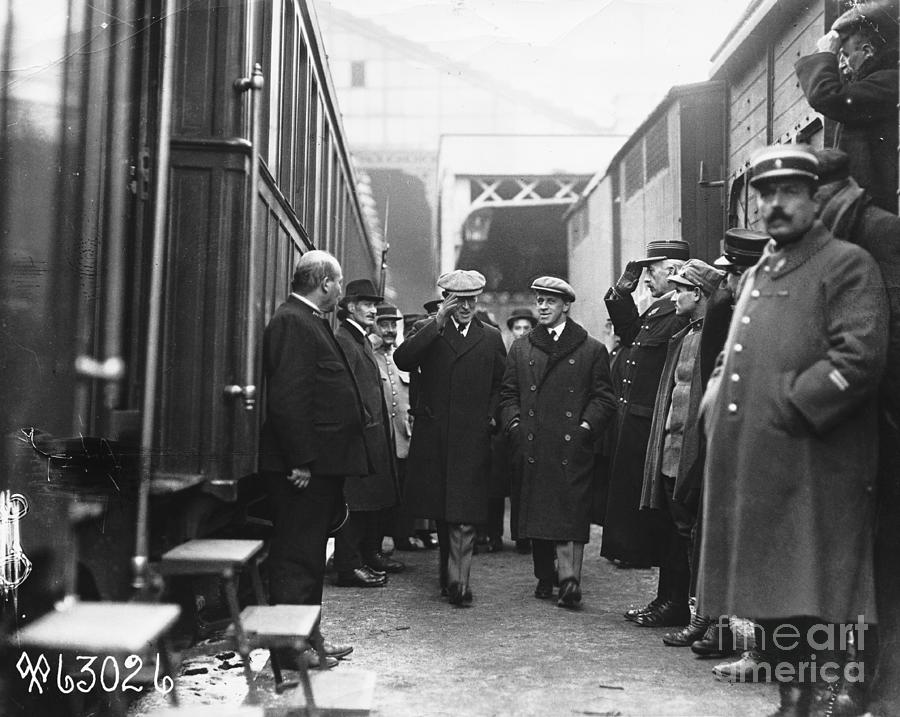
Military leaders wanted to censor anti-war news. Journalist, political campaigner, and Wilson ally George Creel instead recommended using pro-war mass communications to drum up support: "Deep in my heart was the feeling that the desired results [of censorship] could be obtained without paying the price that a formal law would have demanded…I had the conviction that our hope must lie in the aroused patriotism of the newspaper men of America." - George Creel, Chairman of the CPI (1920) [1]
Wilson agreed and signed Executive Order 2594 to form the Committee on Public Information (CPI), chaired by Creel.

“Committee on Public Information.” Woodrow Wilson Presidential Library & Museum, 14 Apr. 1917.

“George Creel, Head of the United States Committee on Public Information.” Time & Life Pictures / Getty Images, ca. 1917-1918.
The CPI operated like a giant advertising campaign. Its 20+ agencies blanketed the US and foreign countries with pro-war messaging using every available form of mass communication: pamphlets, posters, movies, music, speeches, and newspapers. The CPI relied heavily on volunteers to communicate Wilson’s patriotic messaging, recruit soldiers, and gain public support, in the first mass persuasion campaign of its kind. "We were fighting for ideas and ideals, and somebody who realized it, and knew it, had to keep on saying it until it was believed. That was part of the function of the Committee on Public Information." - Newton D. Baker, U.S. Secretary of War from 1916-21 (1918) [2]

"George Creel and President Woodrow Wilson.” Getty Images, 1919.
"We did not call it propaganda, for that word, in German hands, had come to be associated with deceit and corruption. Our effort was educational and informative throughout, for we had such confidence in our case as to feel no other argument was needed than the simple straightforward presentation of facts." ~ George Creel, Chairman of the CPI (1920) [3]
Header image: "Brig Gen W.W. Harts, George Creel of Committee on Public Information and Rear Admiral Cary Grayson, on board the Presidential Royal Train, en route to Rome, Italy." Army War College. Historical Section, World War I Branch, 2 Feb. 1919.
[1] Creel, George. How We Advertised America. Harper and Brothers Publishers, 1920.
[2] Baker, Newton D. "Being the informal address of Mr. Newton D. Baker, Secretary of War, at a dinner given to Mr. Creel in Washington, November 29, 1918." Creel, George. How We Advertised America. Harper and Brothers Publishers, 1920.
[3] Creel, George. How We Advertised America. Harper and Brothers Publishers, 1920.